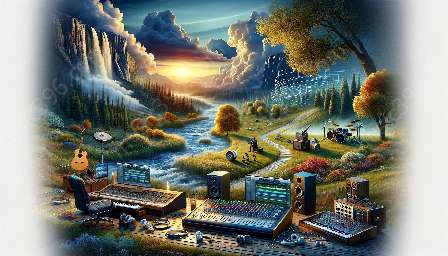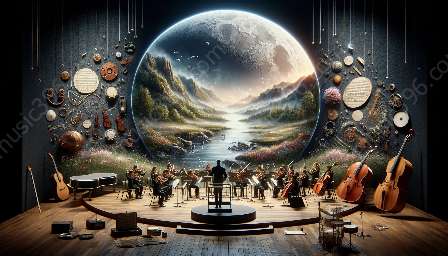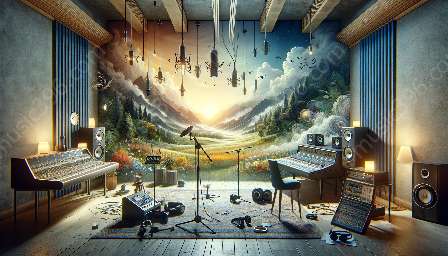Experimental music is a genre that embraces innovative and unconventional approaches to sound creation, often influenced by soundscapes and environmental factors. This topic cluster explores the intersection of experimental music, soundscapes, and environmental influences, providing insights into the unique characteristics and impact of experimental music.
Experimental Music and Its Connection to Soundscapes
Experimental music is a diverse and boundary-pushing genre that challenges traditional notions of composition, instrumentation, and performance. It seeks to expand the sonic palette by exploring unconventional sound sources, textures, and structures. In this context, soundscapes play a crucial role in shaping the sonic landscape of experimental music.
A soundscape refers to the combination of sounds that forms an acoustic environment. It encompasses both natural and human-made sounds and their interactions within a particular space. Experimental musicians often draw inspiration from diverse soundscapes, incorporating elements such as environmental recordings, urban ambience, and industrial noises into their compositions.
By integrating soundscapes into their music, experimental artists create immersive sonic experiences that transport listeners to unfamiliar auditory territories. This use of soundscapes not only enriches the sonic palette of experimental music but also contributes to a deeper understanding of the interplay between sound, environment, and human perception.
Environmental Influences on Experimental Music
Environmental influences play a significant role in shaping the creative process and aesthetic of experimental music. The natural world, urban landscapes, and industrial environments serve as sources of inspiration, prompting musicians to explore the sonic potentials of their surroundings. Environmental sounds, including weather phenomena, animal vocalizations, and mechanical noises, often find their way into experimental music compositions, leading to the blurring of boundaries between music and the surrounding environment.
Moreover, environmental concerns and ecological awareness have increasingly become focal points within the realm of experimental music. Many artists incorporate environmental themes into their work, addressing issues such as climate change, sustainability, and the impact of human activity on the natural world. Through their exploratory and often interdisciplinary practices, experimental musicians raise awareness of environmental challenges and advocate for a deeper connection between music and ecological consciousness.
Experimental Music Studies: Exploring Soundscapes and Environmental Influences
Within the field of experimental music studies, scholars and researchers investigate the complex relationships between music, soundscapes, and environmental influences. This multidisciplinary approach encompasses musicology, ethnomusicology, sound studies, and environmental humanities, offering a comprehensive framework for understanding the intersections between music and the environment.
- Sonic Ecology: Scholars delve into the concept of sonic ecology, examining how sound operates within ecosystems and human societies. They explore the ways in which soundscapes shape cultural identities, environmental narratives, and sonic interactions.
- Acoustic Ethnography: Researchers engage in acoustic ethnography to document and analyze the sonic environments of different cultural and geographical contexts. This ethnographic approach sheds light on the diversity of soundscapes and their implications for musical expressions and environmental experiences.
- Ecologically Informed Composition: The field of experimental music studies also encompasses ecologically informed composition, where composers and performers integrate environmental concerns and sustainability principles into their creative practices. This approach extends beyond the mere representation of environmental sounds, aiming to foster a reciprocal relationship between music-making and ecological consciousness.
Conclusion
Experimental music, with its radical explorations of sound and form, thrives on the dynamic interplay between soundscapes, environmental influences, and human creativity. By delving into the complex web of relationships between experimental music and its sonic and environmental contexts, we gain a deeper appreciation for the diversity and interconnectedness of musical expressions within the broader framework of environmental stewardship. Experimental music studies contribute significantly to unraveling the intricate connections between sound, space, and environmental influences, illuminating the transformative potential of music in shaping our perceptual and ecological landscapes.









































